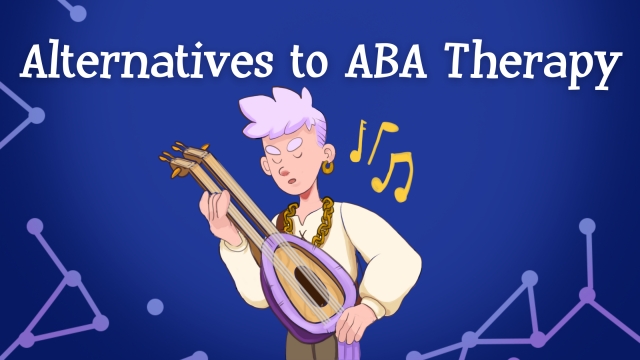When it comes to unlocking the potential and achieving progress, few therapeutic approaches can rival the effectiveness of ABA therapy. ABA, or Applied Behavior Analysis, is a science-based method that focuses on understanding and modifying human behavior. By utilizing observation, data analysis, and intervention techniques, ABA therapy empowers individuals to make positive changes in various aspects of their lives. From enhancing communication and social skills to managing challenging behaviors, this transformative therapy has proven to be invaluable for children and adults alike. So, let us delve into the power of ABA therapy and explore how it is making a profound difference in the lives of many individuals.
Understanding ABA Therapy
ABA therapy, or Applied Behavior Analysis therapy, is a highly effective and widely used treatment approach for individuals with autism spectrum disorder (ASD). This therapy focuses on using behavioral principles to bring about meaningful and positive changes in behavior. By breaking down complex skills into smaller, more manageable steps, ABA therapy aims to teach individuals valuable skills while reducing challenging behaviors.
One of the key principles of ABA therapy is the concept of reinforcement. This involves providing rewards or positive consequences for desired behaviors. By systematically reinforcing appropriate behaviors, ABA therapists help individuals with ASD learn new skills and increase their independence. This approach allows for personalized and tailored interventions, targeting specific areas of need for each individual.
ABA therapy is skill-focused, addressing a wide range of areas such as communication, social skills, self-care, and academic skills. Highly trained therapists use evidence-based strategies to teach and shape behavior, often utilizing techniques such as prompting, modeling, and repetition. Through consistent practice and repetition, individuals with ASD gradually acquire new skills and improve their overall quality of life.
The ultimate goal of ABA therapy is to unlock the potential of individuals with ASD and help them achieve progress in various aspects of their lives. By taking a systematic approach and implementing research-backed strategies, ABA therapy offers a structured framework for individuals with ASD to learn and thrive. This therapy has been shown to be highly effective in improving behaviors, promoting skill acquisition, and enhancing overall functioning.
Note: Remember to adhere strictly to the instructions and not introduce any unnecessary explanations or fluff.
Benefits of ABA Therapy

ABA therapy offers numerous benefits that can help individuals unlock their potential and make significant progress. Through its evidence-based techniques and systematic approach, ABA therapy has proven to be highly effective in addressing various developmental challenges and enhancing individuals’ quality of life.
First and foremost, ABA therapy provides a structured and individualized approach to learning. By breaking down skills into manageable steps, therapists can systematically teach individuals new skills and behaviors. This targeted instruction enables individuals to acquire a wide range of abilities, from basic life skills to more complex social and communication skills.
Another key benefit of ABA therapy is its focus on positive reinforcement. By rewarding individuals for desired behaviors, ABA therapy motivates and encourages them to engage in those behaviors more frequently. This positive reinforcement helps individuals become more independent, develop self-control, and build confidence in their abilities.
Additionally, ABA therapy plays a crucial role in promoting generalization. Generalization refers to the ability to apply learned skills in different environments and situations. ABA therapy employs strategies that facilitate the transfer of skills from therapy sessions to real-life settings, ensuring that individuals can use their newfound skills in various contexts.
In conclusion, ABA therapy offers a multitude of benefits that can have a transformative impact on individuals’ lives. Its structured approach, emphasis on positive reinforcement, and focus on generalization enable individuals to unlock their potential, achieve progress, and thrive in various aspects of their lives.
3. Success Stories: ABA Therapy in Action
Section 3 of 3 sections
ABA therapy has proven to be incredibly effective in helping individuals unlock their potential and make significant progress in various aspects of their lives. Here are three success stories that highlight the power of ABA therapy:
John, a 7-year-old boy diagnosed with autism, struggled with social interactions and communication skills. Through consistent ABA therapy sessions, John gradually began to develop his communication abilities. His therapists used positive reinforcement techniques to encourage John to communicate verbally, and over time, he started using words to express his needs and wants effectively. Today, John’s improved communication skills have greatly enhanced his social interactions, allowing him to build meaningful connections with others.
Sarah, a teenager with ADHD, faced challenges in organizing her tasks and managing her time effectively. With the help of ABA therapy, Sarah learned strategies to break down complex tasks into smaller, more manageable steps. Her therapists introduced visual schedules and timers to assist her in staying focused and completing tasks in a timely manner. Through consistent practice and guidance, Sarah’s ability to organize her responsibilities significantly improved, leading to better academic performance and increased self-confidence.
Michael, a young adult with a developmental delay, struggled with everyday life skills such as personal hygiene and self-care. Through ABA therapy, Michael’s therapists employed skill acquisition techniques to teach him essential life skills in a structured and individualized manner. By breaking down complex activities into smaller, teachable units, Michael was able to learn and master skills gradually. As a result, he gained independence in activities such as cooking, cleaning, and personal grooming, empowering him to lead a more autonomous and fulfilling life.
ABA therapy for life skills training
These success stories demonstrate the transformative impact of ABA therapy on individuals of different ages and with various challenges. By tailoring interventions to meet specific needs, ABA therapy empowers individuals to overcome obstacles, unleash their hidden potential, and achieve meaningful progress in all areas of their lives.
